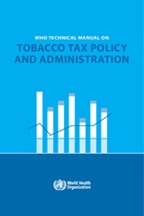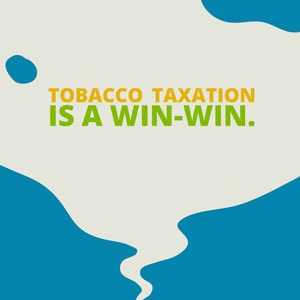Raising taxes on tobacco
Tobacco use kills eight million people every year and is the leading cause of preventable deaths globally. Evidence shows that significantly increasing tobacco excise taxes and prices is the single most effective and cost-effective measure for reducing tobacco use. It is also a measure specifically called for in Article 6 of the WHO Framework Convention on Tobacco Control.
Raising taxes on tobacco products which lead to increases in their price makes tobacco less affordable. When tobacco becomes less affordable people use it less and youth initiation is prevented. Because youth and low-income groups are more responsive to increases in tobacco prices, they disproportionately enjoy the health and economic benefits of quitting and not starting.
Saving lives with tobacco taxes lessens the enormous healthcare burden and economic losses that result from tobacco-related disease. Tobacco taxation is also relatively inexpensive to implement and generates significant revenues over the short and medium term.
WHO supports all its Member States in using tobacco taxes to meet their health, revenue and equity objectives.
Best practices in tobacco taxation policy include:
- Use or begin transitioning to a simple excise tax structure.
- Rely more on specific tobacco excise to drive price increases.
- Ensure tobacco taxes decrease affordability by accounting for the impact of inflation and economic growth.
- Simple tax structures that do not differentiate based on tobacco product characteristics should be used to reduce consumer incentives to downshift their consumption to cheaper brands.
- Implement tobacco taxation as part of a comprehensive strategy for reducing tobacco use.






.tmb-340v.png?sfvrsn=dd7f143d_1)
.tmb-340v.png?sfvrsn=e7dd66bf_2)
-economics-of-tobacco-and-tobacco-control.tmb-340v.jpg?sfvrsn=c5a3b72b_2)
-tobacco-tax-reform-at-the-crossroads-of-health-and-development-thumbnail.tmb-340v.jpg?sfvrsn=d1ac542c_2)


